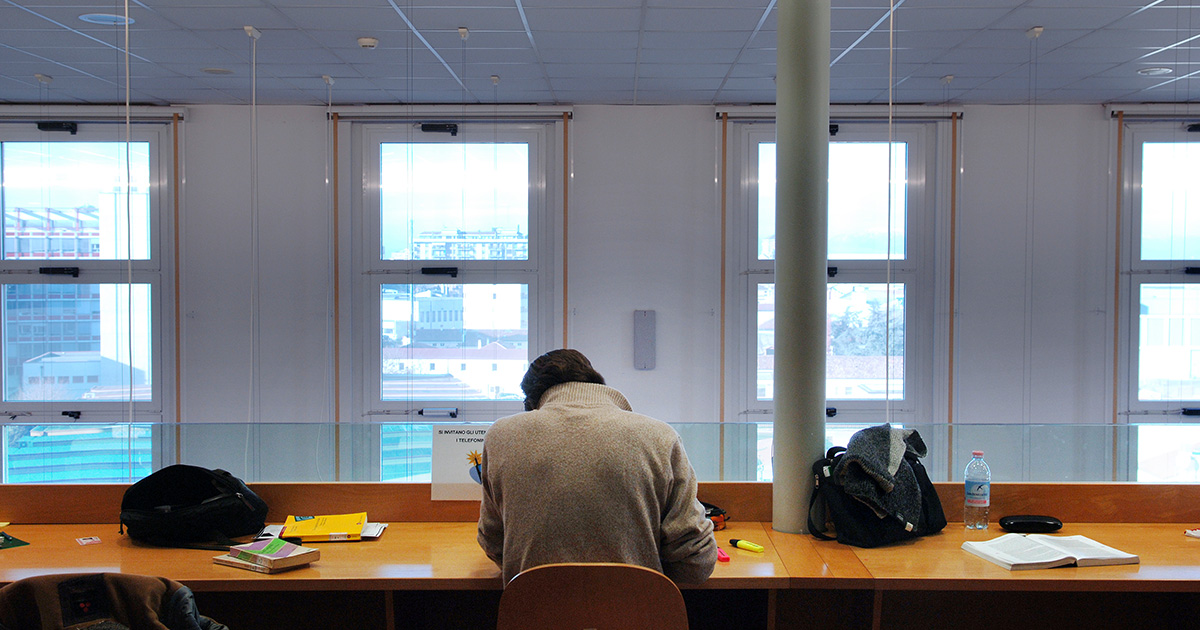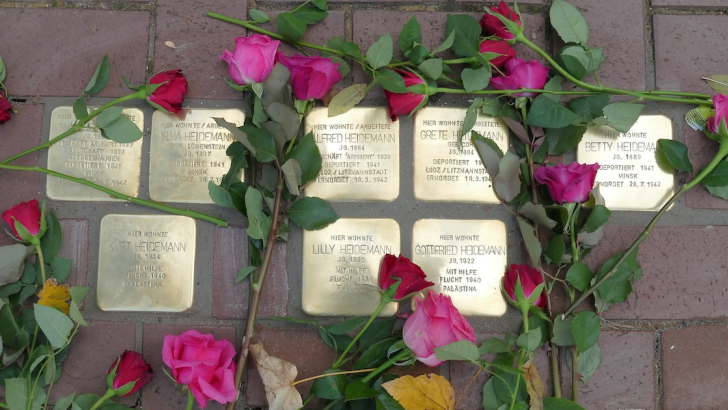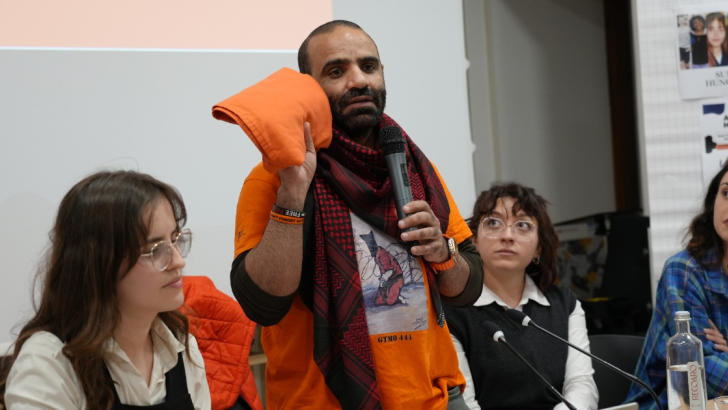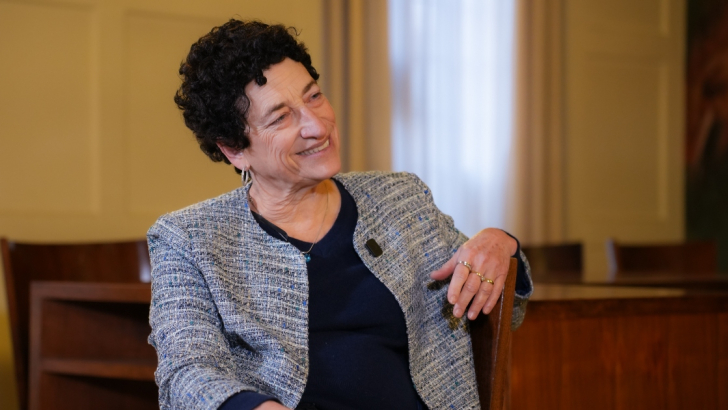The contradictions of academic freedom from the perspective of an exiled scholar in Europe

“But you feel safe in Germany, right?”, the woman inquired, clearly expecting a cheerful, grateful, full-hearted affirmation. I briefly glanced at the picturesque landscapes of the Brenner Pass, before I set out to disappoint her. We were sitting in a packed train from Munich to Italy, where sharing a table in a long trip had compelled us to chit-chat eventually. Like most of my chats with complete strangers over the past 6-7 years, this one, too, had quickly turned into a full-blown life-story-telling session. When you are in exile, even the simplest questions about what you are doing, where you are going, or why you are going can turn into a lengthy and ultimately intimate conversation. Since I came to exile in late 2016, what I was doing or how long I have been living anywhere stopped being topics for small talk. When you have a disrupted life story, people love to hear the details. Or you yearn to overshare anyway, in a subconscious attempt to process. Or both.
“Not entirely”, I said. “I mean, yes, I am not threatened with political execution or incarceration in Germany, but like 92% of the domestic academic workforce, I am dependent on short-term scholarships and have absolutely no idea how it should go on. Indefinite unemployment – you know, never knowing whether you will be able to pay your rent in a 6-months-time from now, or not daring to speak up about workplace misconduct, because you have no power… I’m not sure if you can call it ‘safe’”. She was surprised; her husband, on the other hand, looked openly irritated. “Yeah, but you are at least able to do your research the way you wish to, without fear of being jailed or anything!”, he scowled with greater conviction. Obviously, I had offended their Western savior-pride, as I had often done in conferences and workshops and guest lectures over the last years, where people had quickly regretted having invited me. I stood my ground; I’d had enough of self-celebratory, masturbative convictions: “Well, yes, in Germany you may not go to jail for your research, but rowing against the stream may cause you jobs and research grants. All those foundations, academic journals, the European Research Council and so on – they have their strict rules of what is excellent and worthy of funding; if you do not wrap your project idea in an acceptable ideological package, you won’t get a dime! And also, in every institution, a handful of chaired professors decide over curricula and research agendas and who’s going to get hired or promoted. I have researcher-friends at German universities, who are terrified to speak their minds or take part in precarious researchers’ collectives, because they can’t afford to get stamped as too radical. Many put up with even sexual harassment…”. I paused for a moment, not sure if I wanted to take it this far. Then, what the hell, I added, “I myself was sexually harassed by a senior professor, who is a widely known sexual predator and a star academic, and I couldn’t speak up. I was never sexually harassed in Turkey, but here, in the bastion of academic freedoms, I have been. So were many other women, in various institutions, and nothing happens”.
The couple sighed with reluctant and forced contempt – they weren’t really interested in having the mirror turned to themselves in a conversation where they clearly hoped to just reaffirm their comfortable Eurocentric dichotomies. The husband recovered the unexpected blow quickly and sought to relativize: “Power abuse and sexual harassment do exist everywhere, of course… It’s very bad”. Incredible, I thought, the lengths that people would go to just hold on to their rote-learned precepts. “Yes of course”, I opposed, “but it’s not about sexual harassment or power abuse per se. They sure do happen anywhere and everywhere, but at the end of the day it comes down to how those abominations are being dealt with. It’s about how in Germany, power abuse on chaired professors’ part, even in its most banal, criminal forms like sexual harassment, goes completely unpunished. Like, for example, a professor in Erfurt had been found guilty of offering his female students grades in exchange for sexual services and he had not even been stripped off his civil servant status – up until very recently. Now, after 8 years and multiple protests, he’s finally dismissed. Can you believe?”. They looked nonplussed for a moment. I took the opportunity to go back to my Thomas Mann and smirk on the Settembrini character’s long tirades on European Enlightenment.
Why has it been so hard to make people – not only laymen on train rides, but even colleagues in academia – understand that the absence of something did not automatically mean the presence of another thing? That the absence of overt political oppression was a crucial prerequisite but not the sole criterion of academic freedom? That ‘necessary’ and ‘sufficient’ are not the same? In a way, I knew why, of course. It was easier to deal with only what is happening afar, that is, outside of the countries that are characterized by formally, technically functioning parliamentarian systems. It was easier, and certainly more satisfactory, to turn your gaze towards an underdeveloped “outside” with volatile regimes. Sad, scary, “glad-we-were-not-born-in-one-of-those” kind of places at the margins of the world-economy. Banana Republics with insignificant, low-ranked academic systems. The peripheries of global academia, “outside” of where the “real discourse” is being determined. As if we aren’t living in a capitalist world-economy, where different parts of the globe actually fulfill predetermined roles within the global capital accumulation. As if those different parts aren’t tied with one another in a web of unequal exchange of commodities and services. As if this division of labor does not predetermine the methods of labor coercion in each functional part of the global economy – manufacturing of consent in the core, violent oppression via military coups and human rights abuses in the periphery. As if the academic sector, that is, the knowledge industry, is above and beyond this systemic division of labor and its political implications. As if the distribution of political and economic risks that we see in different academic environments does not in fact reflect that very spatial segregation. As if the under- or unemployed masses of qualified researchers in the leading scientific countries with sparkling records of gross domestic expenditure on research and the politically threatened scholars from peripheral Absurdistans are living in different galaxies with no systemic interconnections between their situations whatsoever.
How many times have I repeated the same credo in every single conference, at every single workshop, over and over again: “Political oppression in the periphery and economic precarization in the core are actually the two sides of the same structural coin and they are ultimately interrelated”? I can still repeat it a million times again until the discourse changes; I will die on this hill: Both economic precarization and political oppression represent methods of devaluing and politically disempowering the knowledge producing labor force. In the core, the main method is to make the intellectual labor force economically vulnerable and reduce their negotiation capacity by eliminating job security. That’s why you’ve started seeing more project-based postdocs and adjuncts than tenured professors around here over the last 2-3 decades. In the peripheral countries, the main method is to ban critical ideas and politically threaten dissidents. That’s why you suddenly have an influx of scholars at risk from peripheral countries like me, often solely hosted as image props at European institutions, until the risk scholarships run out and the ruthless core academic labor markets vomit them up.
And I can gladly continue to annoy every conference organizer, every co-panelist until the academic labor market permanently flushes me out one day, too: The moment you step out of the comfort zone of one-dimensional human-rights-oriented conceptions of academic freedom, you will realize that even in the core countries academic freedom does not fully exist. At least not for everyone. For 92% of academic workers in Germany, 75% in the US, 68% in the UK, and almost 50% in Italy – for those who are trying to survive in a cutthroat academic labor market on fixed-term contracts and are not allowed in faculty committees, have no access to institutional support and occupational prestige, no power over hiring and promotion procedures or even curricula and research programs –, what does it mean to have ‘academic freedom’, besides an on-paper guarantee to do research within the shrinking scope of acceptable opinions and fundable subjects? A freedom that is gifted to a privileged minority of labor aristocracy and excludes a growing reserve army of labor – in a sector that loves to preach the gospel of democracy, freedom, and workers’ rights. A freedom without content. A freedom that the majority cannot afford to exercise in practice. Like a pretty piece of fine China locked away in a cupboard: carefully protected, but never used.
So, yes, if this is the type of academic freedom we are talking about, I feel safe – as safe as a child who secretly snatched that jealously protected porcelain goblet, but still drinks water with cupped hands on the sink for fear of smashing the fragile China, while waiting to get grounded any time.









